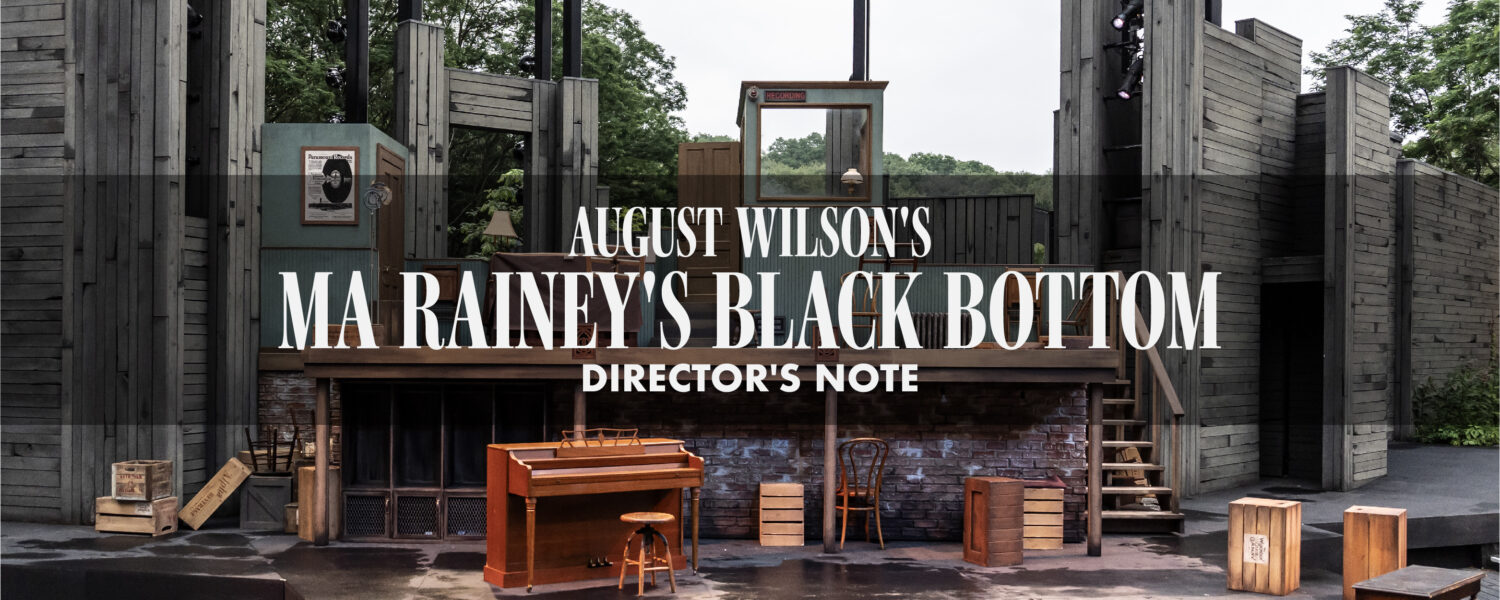Contact Us
American Players Theatre
5950 Golf Course Road
P.O. Box 819
Spring Green, WI 53588
(Map)
Box Office: 608-588-2361
Administration: 608-588-7401
Fax: 608-588-7085
American Players Theatre
5950 Golf Course Road
P.O. Box 819
Spring Green, WI 53588
(Map)
Box Office: 608-588-2361
Administration: 608-588-7401
Fax: 608-588-7085

It’s 1927 and blues singer Gertrude “Ma Rainey” has come to Chicago to record some of her songs. At the peak of her popularity on the southern touring circuit, her most recent recordings have not sold well in the north and the record producers are anxious to turn this session into commercial success. As musical tastes appear to be shifting from Ma’s traditional “tent show” blues to a more “sophisticated” and refined style of music, the record company is hoping to convince Ma to bend to that sophistication with a more upbeat and progressive sound. Levee, Ma’s mercurial trumpet player, haunted by a traumatic past and bursting with ambition, is determined to be on the front lines of this new music. To ensure his success, he shares his compositions with the studio producer hoping to start his own band and play this new music. He is convinced his songs will give the people something to dance to and “forget about their troubles.” However, when Ma arrives it becomes increasingly clear that the music will be played and recorded her way or no recording will take place. It truly is her way or the highway. At a time when Black women were allowed little power in this country much less in the music business, Ma knows her worth and refuses to compromise in any way. Ma and Levee clash and frustrations boil over leading to an inevitable and haunting conclusion.
August Wilson deeply believed that until Black people in this country reached back into our past, claimed it, owned it, and took hold of it instead of running from it, that we would remain unmoored and unable to claim our rightful place as Americans in a country that we built for free. His passion for sharing our ways, our language and our hearts in an unapologetic way has created a poetry like no other. He has taken our beauty, our ugliness, our rhythms and our dreams and made them holy. For me, his plays are church. They are scriptures that give us a song to sing, a place to call home, and a porch light that never goes out.
- Gavin Dillon Lawrence, Director of August Wilson's Ma Rainey's Black Bottom